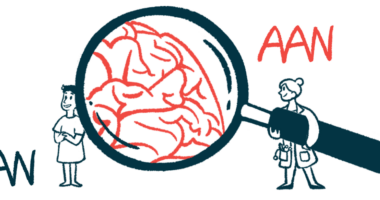UCB Launches Phase 1b Trial Testing UCB0599 for Parkinson’s Disease Treatment

UCB has announced the start of a Phase 1b clinical trial to evaluate the efficacy and safety of its therapeutic candidate UCB0599 for the treatment of Parkinson’s disease.
This multicenter clinical trial will take place across the United States.
Current treatments for Parkinson’s, which include levodopa and dopamine agonists, can help manage early motor symptoms associated with the disease. However, as the disease progresses and neurons continue to degenerate, these therapies ultimately become less effective at treating the symptoms.
Many neurodegenerative diseases, including Parkinson’s, occur due to the accumulation of toxic protein aggregates known as prions.
In the case of Parkinson’s, misfolding and the subsequent aggregation of a protein known as alpha-synuclein results in the formation of Lewy bodies, which are toxic and lead to disease symptoms and progression.
By preventing alpha-synuclein from clumping into Lewy bodies, clearing them out, or stopping their spread from cell to cell, researchers believe they can prevent or slow Parkinson’s progression.
Developed as part of a collaboration between Neuropore Therapies and UCB, UCB0599 is designed to inhibit alpha-synuclein misfolding.
The Parkinson’s Disease News Today forums are a place to connect with other patients, share tips and talk about the latest research. Check them out today!
UCB0599 is a small molecule compound that is taken orally and can penetrate the blood-brain barrier, which is a semipermeable membrane that separates the blood from the cerebrospinal fluid and protects the brain from the outside environment. This membrane is an obstacle for the efficient delivery of therapies that need to reach the brain.
“We are pleased to reach the milestone of advancing into Parkinson’s patients for the first time with UCB0599, a therapeutic candidate arising from our collaboration with UCB,” Errol De Souza, president and CEO of Neuropore Therapies, said in a press release. “We believe that inhibition of alpha-synuclein misfolding and oligomerization with an orally active, brain penetrant, small molecule represents a potential advantage over antibody therapeutics that are currently in development.”
In January 2015, Neuropore Therapies granted UCB a license to develop and commercialize therapies that target alpha-synuclein in all indications around the world. It is thought that alpha-synuclein aggregation also plays a role in other neurodegenerative diseases.






